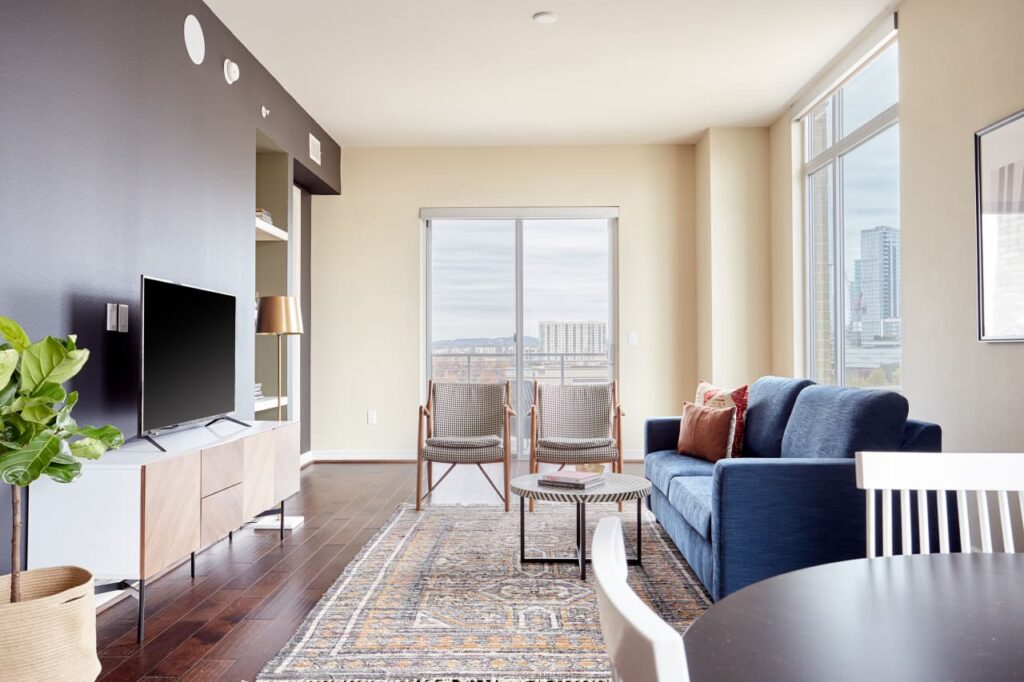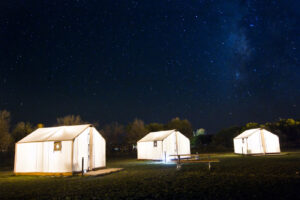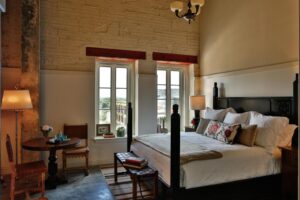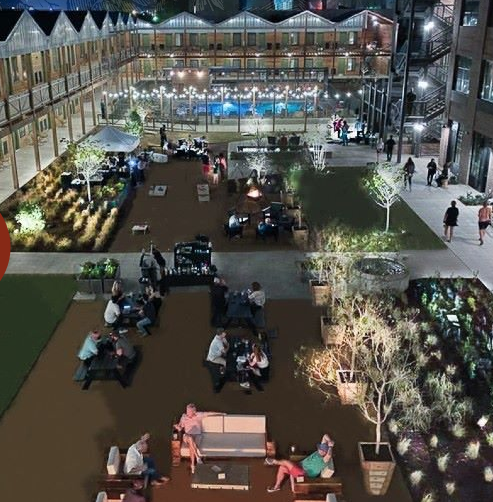Alternative Accommodations
The characteristics of accommodations are changing.
Alternative accommodations like Airbnb and VRBO have grown beyond being a novelty option.
The pandemic altered travelers’ desires for more personalized travel experiences and shifted the alternative to the mainstream.
Hoteliers need to understand what aspects of this growing market are so attractive to travelers.
Offerings emphasizing “authentic/local” experiences, perceived lower cost, ‘work from hotel’, or ‘hometel’ amenities, and family-friendly, pet-friendly services are only part of the growing demand.

The Catherine Austin, listed on Alternative lodging channels.
More and more travelers seek accommodations with personality, and hotels must get creative to compete.
Travelers are staying longer, combining work with leisure, and staying closer to home, for now. But they still seek the unique.
The rise in popularity of alternative lodging websites highlights this changing appetite in travel.
The variety of options keeps expanding.
Travelers can choose between fully serviced apartments, treehouses, tents under the stars, cabins in the woods, goat yoga ranches, mobile hotels, co-living spaces, underwater hotels, and more.
 El Cosmico, Marfa
El Cosmico, Marfa
While most hotels don’t need to replicate these more exotic experiences, they do need to pay attention to travelers’ desires and find inviting alternatives. And the competition is heating up.
Besides leveraging their reputation for quality, predictability, and service, hotels should explore the possibilities of their own alternative offerings.
 Hotel Emma San Antonio
Hotel Emma San Antonio
Here are some popular trends to consider when marketing your lodging property:
Hometels: Traveler’s want more functional space for long-term stays, as residence hotels are one of the fastest-growing sectors in the hotel industry.
Blending aspects of hotels and vacation rentals, newly established brands are operating short-term rentals with hotel-style standards and branding plus amenities that appeal to these travelers like separate sleeping and working spaces, concierge service, in-unit laundry, and full kitchens.
Coworking: Remote work is commonplace and remote workers on the move need desk space, fast WiFi, and possible co-working spaces. For example, see what Accor’s coworking branded Hotel Chicago has designed for inspiration.
Next-gen hotel brands:
 Cotton Court, Lubbock.
Cotton Court, Lubbock. As travelers crave more local experiences, the new generation of hotel brands are doing away with cookie-cutter properties and incorporating local character or history into the decor, food & beverage, and personality of each hotel.
Cotton Court in Lubbock is a good example of a hotel highlighting its history in the cotton industry and Great Plains roots, while offering unique accommodations and open-air spaces.
If re-design or retro-fitting your establishment is not in your immediate plans, remember personality can be conveyed through food and beverage offerings, events with local flavor, attentive staff, and concierge services.
References:
https://www.cottoncourthotel.com


fabulous article!